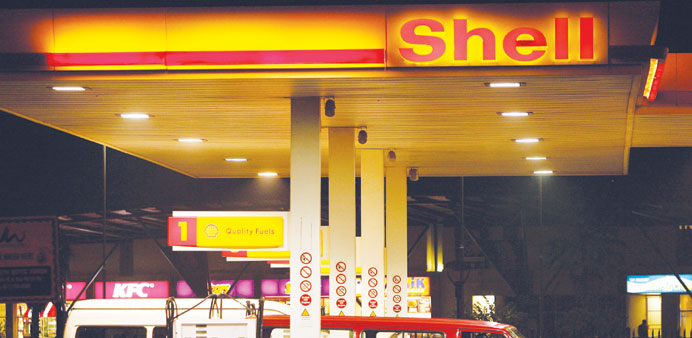AFP
Europe’s stock markets sank yesterday, weighed down by concerns that tougher sanctions against Russia could hurt the region’s economy despite news of a sharp rebound in US economic growth.
Frankfurt’s main DAX index lost 0.62% compared with Tuesday’s closing levels to end the day at 9,593.68 points.
London’s benchmark FTSE 100 index shed 0.50% to 6,773.44 points, while in Paris the CAC 40 tumbled 1.22% to 4,312.3 points.
Energy companies led the charge lower, after the US and European Union agreed to expand restrictions against Moscow, targeting the Russian energy, defence and finance sectors.
“The most obvious sector set to suffer on the back of various countries and regions imposing sanctions on Russia is energy—a fact brought sharply into focus by comments from BP,” said IG Group’s chief market strategist Brenda Kelly.
Russian markets, however, rallied around 2.0% as investors breathed a sigh of relief that sanctions were not tougher. The ruble also gained 0.5% to 35.56 to the dollar, and 0.34% to 47.53 against the euro.
On Wall Street, markets were weak despite news the economy rebounded in the second quarter to a peppy 4.0% growth and news that job growth stayed strong for the fourth straight month.
Traders said equities gave up earlier gains over fears that the upbeat data could tempt the Federal Reserve to tighten up monetary policy more quickly than expected.
“The US picture is one of solid underlying momentum. That should mean a first rate hike no later than April next year,” said Robert Wood, an economist with Berenberg.
In mid-afternoon trading, the Dow Jones Industrial Average fell 0.53% to 16,823.27.
The broad-based S&P 500 lost 0.23% to 1,965.33, while the tech-rich Nasdaq Composite Index was largely flat at 4,44.99.
In London, Royal Dutch Shell lost 1.37% and BG Group retreated 1.75% over fears that the sanctions on Russia could weigh on profits.
Barclays’ share price soared 4.2% after the bank posted a 68% jump in first-half net profits, as it continued to shrink its investment bank division.
Schneider Electric shares slumped 4.27% in Paris after the electrical equipment maker reported weak first-half results dragged down by poor European demand and unfavourable exchange rates.
Airbus shares climbed 4.2% after the defence group posted a stellar performance in the first half of the year, raising net profits by half and confirming its full-year outlook.
In Madrid, BBVA shares closed up 1.1%, despite news its first-half profits more than halved, after news that the Spanish economy grew by a better-than-expected 0.6% in the second quarter.
But Portugal’s main index closed down 3.33% as investors expected troubled Banco Espirito Santo to report significant first-half losses after the close.
The European single currency meanwhile slid to $1.3370 - the lowest level since mid-November. It later recovered slightly to $1.3373, down from $1.3409 in New York on Tuesday.
Economist Jonathan Loynes of Capital Economics predicted that the euro could fall to $1.30 by the end of this year as the eurozone recovery remains weak compared with that of the US.
News that Germany’s inflation fell to the lowest level for more than four years this month also fuelled expectations that the European Central Bank may take new measures against deflation.
“The euro finally appears to be succumbing to the downward pressure implied by the divergent prospects for monetary policy in the US and eurozone,” Loynes said.

